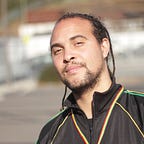The Native American Diaspora
Where Do Non-Tribal Natives Fit?
I spent the majority of my childhood growing up in the American Southwest, namely Colorado and New Mexico. During those formative years, I attended schools that taught local Native American history. I learned about Geronimo and the Apache, the Hopi of the Four Corners region and the Pueblo and Zuni from areas near present-day Santa Fe.
We would pass through reservations frequently when driving from state to state. I’m of mixed ancestry and have self-identified as African American since the first time I was called a racial slur used exclusively for Black people. To my surprise, I would later discover I have Native American blood as well.
All My Relations
In my early twenties, I was given an African Ancestry test to trace my father’s lineage back to Africa. The results threw me for a loop. Apparently, the DNA I inherited from my father comes from a tribe of Native Amerindians living in present-day Bolivia. This new information sparked mention of the numerous rumors of Native American ancestry that were handed down through the generations on my dad’s side.
My aunt told me that on one side we descend from the Lenni Lenape (commonly referred to as the Delaware tribe) from Southern New Jersey and the Cherokee from our ancestors that came north from Georgia on the other. We only have family stories as evidence and no tribal affiliation so it got me thinking, where do those with Native American blood but no tribal ties fit in the Native Diaspora? I use the term diaspora because many tribes functioned as sovereign nations long before Europen contact forced them off of their native lands or shipped them abroad.
Tribe Over Blood
Senator Elizabeth Warren recently made a publicity stunt when she took a DNA test to prove she was justified in her claim of Native American descent on her Harvard application. In response, the Cherokee Nation rebuked her results and attempt to claim a tribal connection. Their refusal to accept Warren rested largely on the fact that none of her ancestors appeared on the Dawes Rolls.
According to The Cherokee Nation’s secretary of state, Chuck Hoskin Jr., “It makes a mockery out of DNA tests and its legitimate uses while also dishonoring legitimate tribal governments and their citizens, whose ancestors are well documented and whose heritage is proven.” Hoskin’s critique got me thinking about where those that have considerable Native American ancestry but no tribal affiliation fit in the Native American Diaspora.
Tribal documentation, like the Dawes Rolls, is the standard for being affiliated with the predominant tribes in North America. However, many non-Natives (so-called $5 Indians) took advantage of the system and bribed their way onto tribal documents and thus passed tribal affiliation down to their ancestors through disingenuous means.
This means that there are non-Natives with tribal affiliation and there are those with Native ancestry that can make no such claim. This issue is further complicated by the fact that the Cherokee and Seminole Nations (amongst others) owned slaves for several generations that later became known as the Freedmen. Many of these Black Native descendants have had a tumultuous relationship with their tribes, sometimes resulting in being stripped of their tribal citizenship. In essence, tribal affiliation has less to do with blood and more to do with one’s ancestors’ signatures.
Seeking the Red Road
So what about people like me? I have no desire to be affiliated with any given tribe. Partly due to the fact that I supposedly have more than one tribe in my family tree and partly because who wants to be part of a group that wants nothing to do with you? On the other hand, I do want to know more about that part of my family and the cultures that gave birth to my ancestors.
Having roots in several indigenous nations is both a blessing and a burden. Knowing that there are ancestral connections that go deeper than colonialism and slavery can be a source of confidence. Alternatively, being turned away is not a pleasant experience.
A few years after discovering my Native roots, my wife and I attended a retreat on Native lands called Red Winds. We met with elders from the Lakota Nation and assembled with indigenous people from all over the country. During that visit, I realized that embracing this side of my culture was not going to be easy but at the same time, it became evident that my fellow Natives, both tribally-affiliated and otherwise, need allies. We expressed this solidarity by supporting our brothers and sisters at Standing Rock.
I left the retreat with more questions than answers but the bottom line was that solidarity with the historically oppressed superseded my need to belong. By supplanting my desire to have a tribal identity with a passion to see people of all nations improve, I was able to better manage my emotions and embrace my indigenous heritage on a universal level. Walking the red road does not require affiliation with a given tribe. It leads to a clean heart, respect for nature, and reverence for the ancestors.
